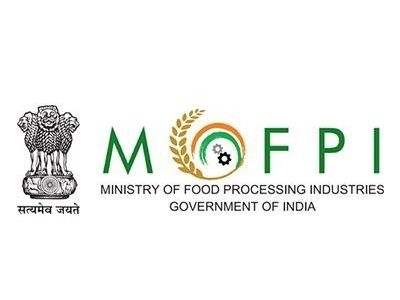New Delhi: In the last seven years leading up to 2021-22, the Food Processing (FP) sector has become a crucial contributor to the Indian economy, showcasing growth in terms of GDP contribution, employment generation, and exports. The sector has witnessed an Average Annual Growth Rate (AAGR) of approximately 7.26%, with the Gross Value Added (GVA) in the FP sector escalating from 1.30 lakh crore in 2013-14 to 2.08 lakh crore in 2021-22.
The Ministry of Food Processing Industries (MoFPI) has played a significant role in fostering this growth through the implementation of various schemes. The Pradhan Mantri Kisan Sampada Yojana (PMKSY), a Central Sector Scheme, has been instrumental in creating modern infrastructure with efficient supply chain management, contributing to the overall development and growth of the Food Processing Industries. The scheme aims to reduce wastage of agricultural produce, increase processing levels, generate employment, and enhance the export of processed foods.
Additionally, MoFPI is actively implementing the PM Formalisation of Micro Food Processing Enterprises Scheme (PMFME), a Centrally Sponsored Scheme providing technical, financial, and business support for setting up or upgrading 2 lakh Micro Food Processing Enterprises. The Production Linked Incentive scheme (PLIS) has also been launched to create global food champions and boost the visibility of Indian food brands abroad.
To encourage investment in the Food Processing Sector, MoFPI has taken several measures, including exempting all processed food items from licensing requirements, permitting 100% Foreign Direct Investment (FDI) through automatic routes for the food processing sector, allowing 100% FDI for trading in food products produced in India, and implementing lower Goods and Services Tax (GST) rates for raw and processed products.
Despite the sector’s progress, the unorganized FP sector in the country comprises nearly 25 lakh unregistered and informal enterprises facing challenges in credit access, technology adoption, branding, marketing, and food safety. As part of the Atmanirbhar Bharat Abhiyan, MoFPI is actively addressing these challenges through the PMFME scheme, focusing on supporting micro food processing enterprises and enhancing sector competitiveness.
As of January 31, 2024, under the PMFME Scheme, 72,556 loans have been sanctioned, benefiting from credit-linked subsidies, including 1,175 loans in Odisha. An amount of Rs. 771.12 crores has been released as Seed Capital, benefiting 236,704 Self-Help Group (SHG) members, with Rs. 67.91 crores specifically allocated for 23,400 SHG members in Odisha. Training programs under Food Processing Entrepreneurship Development have reached 62,140 beneficiaries, including 6,439 in Odisha. Furthermore, 14 One District One Product (ODOP) brands and 166 products have been successfully launched nationwide.
Union Minister of State for Food Processing Industries, Km. Shobha Karandlaje, shared this information in a written reply during the Lok Sabha session, underlining the government’s commitment to fostering growth in the food processing sector and supporting micro-enterprises in the unorganized segment.

